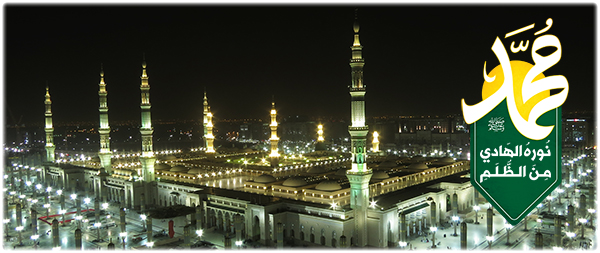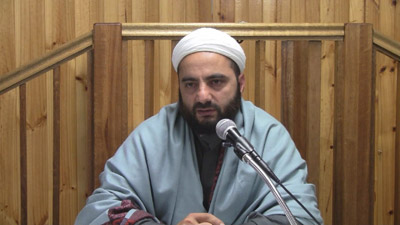Hajj, ^Umrah, Udhiya, Eid, Dhul-Hijjah – Article – Audio – Video Lectures
Written by 2mfm on 17 August 2016
We praise Allah and we thank Him and we ask Allah to raise the rank of our master Muhammad (peace be upon him).
Allah the Exalted, said in Surat Al-^Imran, verse 97:
{وَلِلّهِ عَلَى النَّاسِ حِجُّ الْبَيْتِ مَنِ اسْتَطَاعَ إِلَيْهِ سَبِيلا}
This verse means: “Allah obligated people, who are able, to perform Pilgrimage (Hajj) to Makkah.”

As the Hajj season approaches, the truthful righteous believers start to feel in their hearts the blessings of this season. Some even start preparing themselves for this Holy journey to Makkah and Madinah, the city of the best of all creations, Prophet Muhammadﷺ . Others who long for the Holy Cities of Makkah and Madinah but are unable to go remain struck with grief and sadness especially because they are unsure whether or not they would be able to perform Hajj in the upcoming years.
To perform Hajj means to go to the Ka^bah at a particular time with the intention to perform there the specific known actions which Allah ordered to be done in performing this worship. The scholars hold the consensus that performing Hajj is an obligation on the Muslim who is able, free, and accountable. Allah said in Surat Al-Baqarah, verse 196:
{وَأَتِمُّوا الحَجَّ وَالعُمْرَةَ لله}
This verse means: “Perform Hajj and ^Umrah completely in obedience to Allah.”
Performing Hajj is among the matters of the Religion known by the Muslim scholars and lay people alike. Therefore, the one who denies its obligation blasphemes. However, the one who does not deny its obligation, but delays performing it until one dies, although one is able to do so, does not blaspheme. Rather, one commits an enormous sin.
Al-Bukhariyy narrated the sahih hadith of the Prophetﷺ :
مَن حَجَّ فَلم يَرْفُثْ ولم يَفْسُقْ خَرَجَ مِنْ ذُنُوبهِ كيومَ وَلَدَتْهُ أُمُّه
It means: “The one who performs Hajj and while muhrim refrains from sexual intercourse or committing enormous sins, then one will be as clear of one’s sins just as one was clear of sins when one’s mother gave birth to one.”
Performing Hajj and ^Umrah once in a lifetime becomes obligatory upon the Muslim who is free, accountable, and can afford to reach Makkah and return to his place of origin. This includes the one who has in excess in debt, appropriate lodging and clothing, and what one is obligated to spend on those whom one must support from one’s departure until one’s return.
Hajj has six Integrals (Rukns), they are:
1. Intention; made during the months of Hajj— The first integral for the person intending to travel to Makkah to perform the Pilgrimage (Hajj) is to establish the intention in his heart to enter into the actions of Pilgrimage (Hajj or ^Umrah). It is this intention and not just donning the clothes of ihram which causes one to enter that state.
2. Physical presence at ^Arafat; for some time between the start of Dhuhr on the 9th of Dhul-Hijjah and the dawn of the following day. The Prophetﷺ said:
الحجُّ عَرَفَة
It means: “The greatest integral of Hajj is one’s presence in ^Arafat.”
3. Tawaf; It is not valid to perform this integral of tawaf except after the middle of the night preceding the ^Id day. Tawaf is performed by circling the Ka^bah seven (7) times, keeping the Ka^bah to one’s left side starting with the black stone. To perform tawaf, one must be clear of any ritual impurities (both minor and major) and be clear of najas-filth on one’s body or clothes or what one is carrying, as is the case when in the prayer.
4. Sa^y; (performed after a tawaf). This is performed between the mounts of As–Safa and Al-Marwa.
5. Shaving the head or trimming the hair; (after the middle of the eve of the 10th).
6. Observing the order; in performing most of these five (5) integrals.

Hajj has six (6) integrals (rukns): i.e., those matters which must be performed for Hajj to be valid and which, if not performed, it cannot be compensated by slaughtering an edible animal. Some of these integrals have a very specific and limited time frame to perform them in. So, if one misses performing them in their due time, then one’s Hajj is invalid and one cannot do anything to make it valid. However, (unlike the integral) leaving out a requisite such as throwing pebbles at the three jamrahs, does not invalidate Hajj. Rather, the person is sinful and an expiation is due on him.
In the end we ask Allah to grant us the ability to perform the Pilgrimage and ^Umrah and the privilege of being able to visit Prophet Muhammadﷺ at his grave. Ameen
 Inside the Chamber of Prophet Muhammadﷺ
Inside the Chamber of Prophet Muhammadﷺ
(Click on image to view full article)
Note: We urge Muslims to fast “The Day of ^Arafah”. This is the day before Eid Al-Adha and is considered the best day of the year in the Islamic Calendar. Scroll down for detailed Videos & Audios about this great event.
Video and Audio Lectures about Hajj, ^Umrah, Udhiyah, Dhul- Hijjah and Eid Al-Adha
Integrals & Requisites of Hajj – By Sheikh Bilal Homaysi

 View on YouTube
View on YouTube![]() Listen on SoundCloud
Listen on SoundCloud
Prohibitions During Hajj and Umrah & Recommended Deeds – By Sheikh Bilal Homaysi

 View on YouTube
View on YouTube![]() Listen on SoundCloud
Listen on SoundCloud
The Day Of ^Arafah, Udhiya & Eid Prayer – By Sheikh Ibrahim El-Shafie

 View on YouTube
View on YouTube![]() Listen on SoundCloud
Listen on SoundCloud
The First Ten Days Of Dhul Hijjah – By Sheikh Ibrahim El-Shafie





